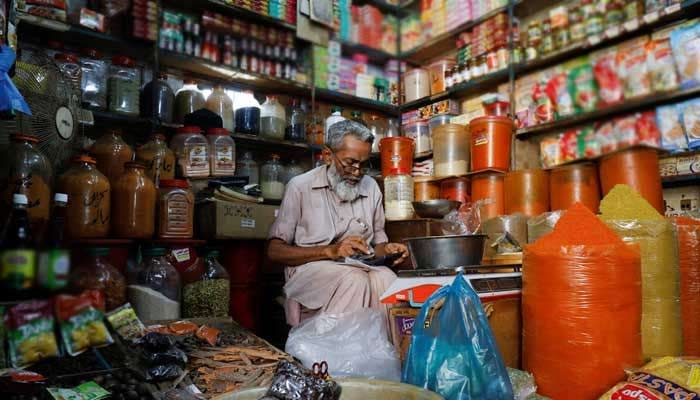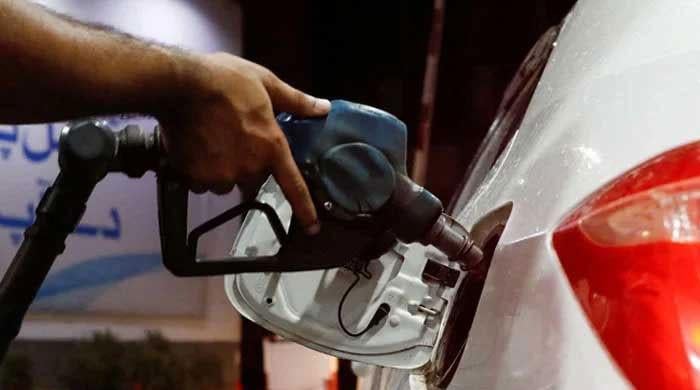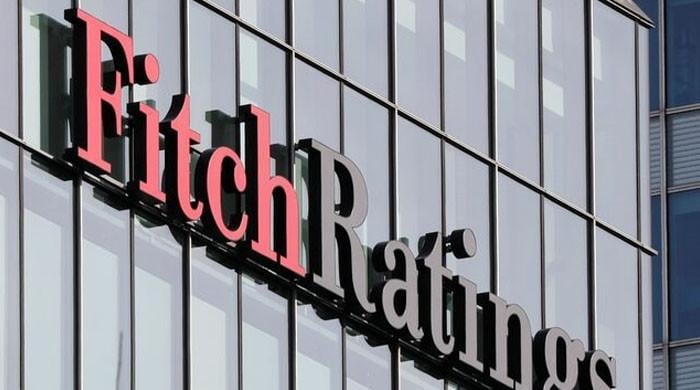Inflation clocks in at 23-month low of 17.3% beating govt expectations
Month-on-month inflation also went down 0.4% in April, marking the first negative growth since June 2023
May 02, 2024

- CPI inflation lower than government expectations of 18.5-19.5%.
- July-Apr average inflation down at 25.97% from 28.23% last year.
- Govt says inflation outlook for April 2024 on downward trajectory.
Showing signs it has finally started cooling off, Pakistan's Consumer Price Index (CPI) based inflation was recorded at 17.3% year-on-year in April — the lowest in nearly two years and well below the government's expectations, latest numbers released by Pakistan Bureau of Statistics (PBS) showed on Thursday.
The economy had been battling with inflation topping 20% since May 2022, peaking at a staggering 38% last May and these skyrocketing inflation rates coincided with the reforms implemented as part of an much-needed International Monetary Fund (IMF) bailout programme.
“This is the lowest reading in the last 23 months (after May 2022),” said Mohammed Sohail, CEO of Topline Securities, in a note.
There are more positive signs as month-on-month inflation also went down 0.4% in April, marking the first negative growth since June 2023, suggesting that inflation might be on a downward trend.
As per the latest data, July-April average inflation settled at 25.97% compared to 28.23% in the same period last year.
The Ministry of Finance on Tuesday, in its "Monthly Economic Update and Outlook" report, forecasted that CPI-based inflation to be around 18.5-19.5% in April 2024, and slow down further in the coming months,
The ministry said the inflation outlook for April 2024 has been on a downward trajectory mainly because of the favourable base effect from the previous year and improvements in the domestic supply chain of essential items.
The inflation outlook “appears moderate as the government is determined to reduce inflation by actively taking strict administrative measures”, as per the Finance Division.
“Inflation is projected to hover around 18.5- 19.5% in April 2024. However, there are expectations of a gradual easing further to 17.5-18.5% in May 2024.”
Even before the IMF approved a $1.1 billion loan instalment under a previously agreed-upon programme, State Bank of Pakistan maintaining staus quo held its key interest rate at a high of 22%.
The bank's monetary policy committee believes this continued tight monetary policy is necessary to bring inflation down to a more manageable level.
“The Committee noted that macroeconomic stabilisation measures are contributing to considerable improvement in both inflation and external position, amidst moderate economic recovery.
“However, the MPC viewed that the level of inflation is still high. At the same time, global commodity prices appear to have bottomed out with resilient global growth.
“The recent geopolitical events have also added uncertainty about their outlook. Moreover, the upcoming budgetary measures may have implications for the near-term inflation outlook. On balance, the Committee stressed on continuation of the current monetary policy stance to bring inflation down to the target range of 5–7 percent by September 2025.”











